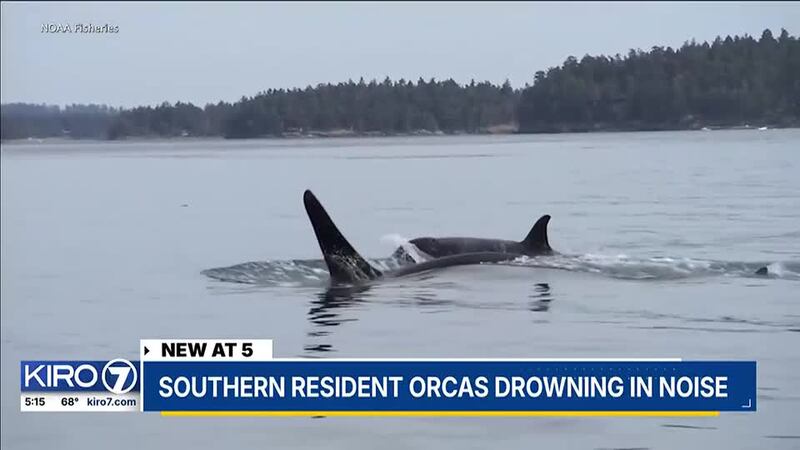SEATTLE — Just 74 southern residents remain. Washington’s beloved orcas are extremely endangered. But now researchers are learning more about what’s hindering their recovery.
A new research paper from the University of Washington and NOAA is called ‘Thanks to humans, Salish Sea waters are too noisy for resident orcas to hunt successfully.’ The paper describes the impact of vessel noise on northern and southern residents.
“A lot of whales and dolphins rely on sound in order to be able to find prey, and so when there’s a lot of noise in the environment that can make it difficult to be able to effectively hunt,” says UW research scientist Jennifer Tennessen.
She tells KIRO 7 that anything with propellors – ferries, cargo ships, and boats - creates audio chaos underneath the surface for wildlife.
Throughout their research, scientists used detection tags, attached to orcas, to track hunting attempts at different sound levels.
“We were able to actually show what they were hearing and then directly relate that to how they were catching fish and if they were catching fish,” says Tennessen.
Researchers found that for every additional decibel increase in maximum noise levels, there was a lower chance of female orcas pursuing prey and a lower chance that both males and females would actually capture prey.
Additionally, the paper describes, ‘the impact of noise may contribute to nutritional stress among females, which previous research has linked to high rates of pregnancy failure among southern residents.’
The solution? Quieter waters, says Tennessen.
“When you factor in the complicated legacy we’ve created for the resident orcas — habitat destruction for salmon, water pollution, the risk of vessel collisions — adding in noise pollution just compounds a situation that is already dire,” said Tennessen. “The situation could be turned around, but only with great effort and coordination on our part.”
©2024 Cox Media Group








